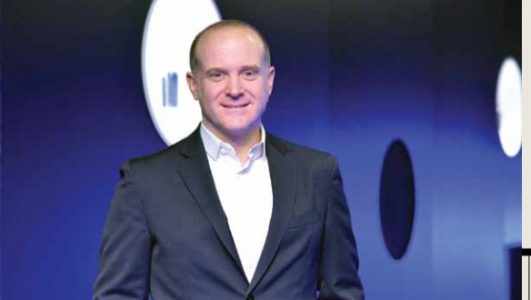Company not only declared its dedication to pursue smoke free future, but invested billions of dollars in science and in expanding capacities that will make this vision come to life

Philip Morris International (PMI) is leading a transformation in the tobacco industry to create a smoke-free future for the benefit of adult smokers, society, the company and its shareholders. Andrea Ciuti, Commercial Director for South East European Philip Morris International, talked about company’s and his own mission to replace conventional cigarettes with smoke free products.
When you first joined the company, could you have imagined and hoped that the company would completely change its vision in the smoke-free direction? How did this change affect you personally?
— I’ve been with the company for 16 years. In that period I’ve changed numerous positions, moved 9 times, from Portugal to Algeria, had an exciting and inspirational career, and then this tectonic change happened. Not only did our company officially declare that we would pursue smoke-free future, but it has also invested billions of dollars in science on developing smoke-free alternatives for cigarettes and expanding capacities that will make this vision come to life. That made me more enthusiastic about my job then I’ve ever been to before. Although I consider smoking as a conscious choice of adult people, now I’m eager to convince smokers who don’t want to quit to switch to better alternatives, or at least to let them know that they exist. I enjoy talking to people who disagree with us, or who are sceptical about PMI’s intentions. And I don’t do that only as a Philip Morris employee. That is my mission even when I leave my office. I live for and love this change!
Philip Morris has changed its core product from Marlboro to IQOS. How have consumers in different markets accepted this innovation? What is now different – the company’s approach or the consumer reaction?
— There are certainly different levels of readiness for innovation and changing habits from country to country. We have experienced that on our very first step when we launched IQOS in Italy and Japan. The Japanese are obsessed with technology and hygiene. The Italians not that much. Therefore, the Japanese accepted this alternative immediately, while the Italians were more hesitant. However, once you overcome barriers of ignorance or reluctance, and when smokers try and experience the benefits of switching to less harmful alternatives, it doesn’t matter which part of the world they live in. They become a part of the same, innovative and better world. This complete transformation of PMI business certainly affected PMI employees, but PMI is still ranked as the “Top Employer”, not only in Serbia but worldwide too.
How did the employees keep up with all the changes?
— We used to be in the cigarette business for more than 150 years and there wasn’t much novelty in it. However, when you’re entering a completely new venue you have to learn how children do. I observe sometimes my youngest daughter, who is now 5 years old when she is sitting quietly with her sisters, listening, absorbing information, connecting dots and then finally, typically of her, loudly expresses her ideas and suggestions for new adventures. That is how we do things today. Our senior management team has also acquired this children’s approach and now they listen more then they talk. This led to a different dynamic that motivates rather then scares our employees.
What makes Serbia and Belgrade special in comparison to other countries that you have worked in, both from a professional and private perspective?
— Belgrade is a positive mix of everything I like. The city is great, pulsating day and night, with a lot of good vibes. What struck me the most is that every stone has its own history. I live in Dorćol, and there, in the 200-metre-radius, you can see a beautiful mosque, a Jewish synagogue and a Roman well on Kalemegdan Fortress. Seeing all these different cultures and meeting so many people with a perfect dose of openness and directness, made me understand why our South East Europe Cluster is so efficiently managed from Belgrade. There is no one-sided, top-down hierarchy but a healthy relationship and respect between colleagues in all 6 markets. I worked around the world, so believe me, that is something that you don’t see everywhere